Trump’s shock troops: Who are the ‘alt-right’?
- Published
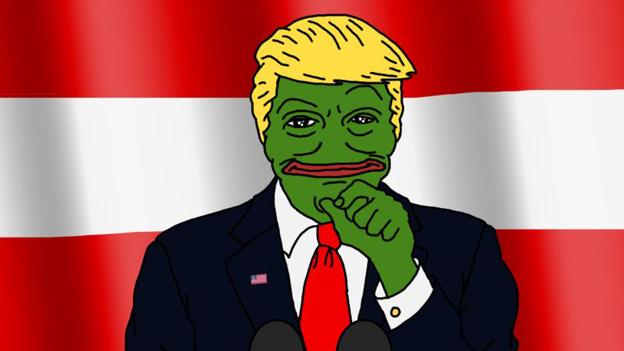
Trump re-tweeted cartoon of himself as the internet meme Pepe the frog, with the caption "Can't stump the Trump"
A disparate group of provocateurs is challenging conservative orthodoxy from the right. They hate political correctness and love Donald Trump - but their critics say they're nothing but bigoted white nationalists.
There was a moment when the phrase "alt-right" first started to get real traction in the mainstream media.
It began with a tweet by US Republican presidential nominee Donald Trump. It showed an image of his opponent, Hillary Clinton, alongside a six-pointed star containing the words: "Most Corrupt Candidate Ever!"

It wasn't long before Trump's critics zeroed in on the six-pointed star - said to resemble a Star of David - and the pile of money. They immediately accused the Republican nominee of using dog-whistle tactics, playing on old stereotypes about Jews, money, and corruption.
The candidate himself denied the allegations - although he deleted the tweet, later reposting the image with a circle replacing the star.
Anthony Smith, a journalist for the website Mic, got a tip that the image had appeared on 8chan, an extreme message board with many users who self-identify as members of the alt-right movement.
At first Smith was sceptical that he'd be able to stand the story up. The message board is fast-moving, threads get deleted quickly, and it's difficult to search for and find images. But within an hour, he had his answer.

The Clinton meme had first appeared on the 8Chan message board
"Sure enough I found it, and I was able to confirm that it was on this board before it was on Trump's Twitter feed," he says.
Smith's story was picked up by the BBC and other news outlets, and many picked up on the link between the image and the amorphous movement known as the alt-right. But what is it, what do its members believe, and what influence are they having on mainstream politics?
As a disparate, mostly online phenomenon that lacks a cohesive structure or any sort of central organisation, it's tough to pin down. But observers of the movement - both critics and supporters - agree on a few things.
The alt-right is against political correctness and feminism. It's nationalist, tribalist and anti-establishment. Its followers are fond of internet pranks and using provocative, often grossly offensive messages to goad their enemies on both the right and the left. And many of them are huge supporters of Donald Trump.

The Briefing Room on Radio 4
Hear more about the alt-right on The Briefing Room - you can download the podcast here.

In a speech last night, Hillary Clinton lambasted Trump for his ties to what she called, external the "emerging racist ideology known as the alt-right" and said her rival was "helping a radical fringe take over the Republican Party".
Iain Davis, who lives in Surrey and runs several alt-right social media accounts, says the movement includes a whole range of people, from libertarians, men's rights activists, Christians and traditionalists - as well as neo-nazis.
"There's all these ideas happening in there," says Davis. "This community works over multiple different social media platforms and networks, and there are all sorts of figures and faces involved in it."
They can be particularly vicious towards their perceived enemies. According to Time magazine "trolling has become the main tool of the alt-right". They pejoratively call liberals "social justice warriors" or SJWs, and establishment conservatives are dubbed "cuckservatives" - a portmanteau that the Southern Poverty Law Centre says, external refers to "cuckolding", a racially-charged genre of pornography.
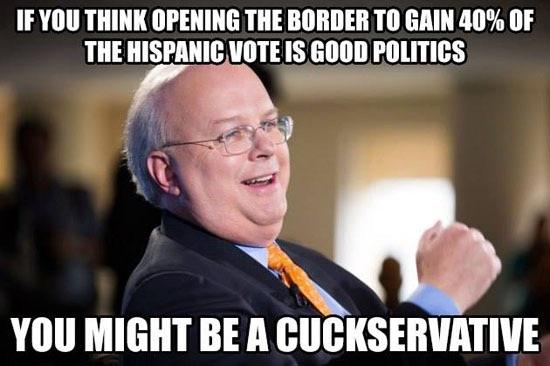
An alt-right meme attacking former Bush adviser Karl Rove as a "cuckservative"
Davis says his opposition to immigration from Muslim countries drew him into the movement, and he is an enthusiastic participant in many online spats.
"SJWs will ostracise you, they are very happy to call you 'racist' in their own tight definition of the word, find out where you live, find out who you work for, and make sure your employer gets you fired," he says.
"We are very interested in seeing this kind of behaviour ended. That's one of the things that I like about the alt-right, we are responding to this online bullying, even though we get accused of this online bullying ourselves."
As a nebulous movement, exact numbers are hard to come by, but Smith, the journalist, traces the alt-right to a speech, external given by an obscure right-wing philosopher, Paul Gottfried, shortly after the election of Barack Obama in 2008.
In it, Gottfried called for "an independent intellectual Right, one that exists without movement establishment funding" and declared: "Our group is also full of young thinkers and activists, and if there is to be an independent Right, our group will have to become its leaders."
"At its core it identified black radicalism, radical feminists, open borders activists, these are the enemies, the enemy is progressive society, the enemy is political correctness," Smith says. "From there in the wake of America electing its first black president, all of a sudden you see these people rising from the shadows and organising in a way they haven't organised before."
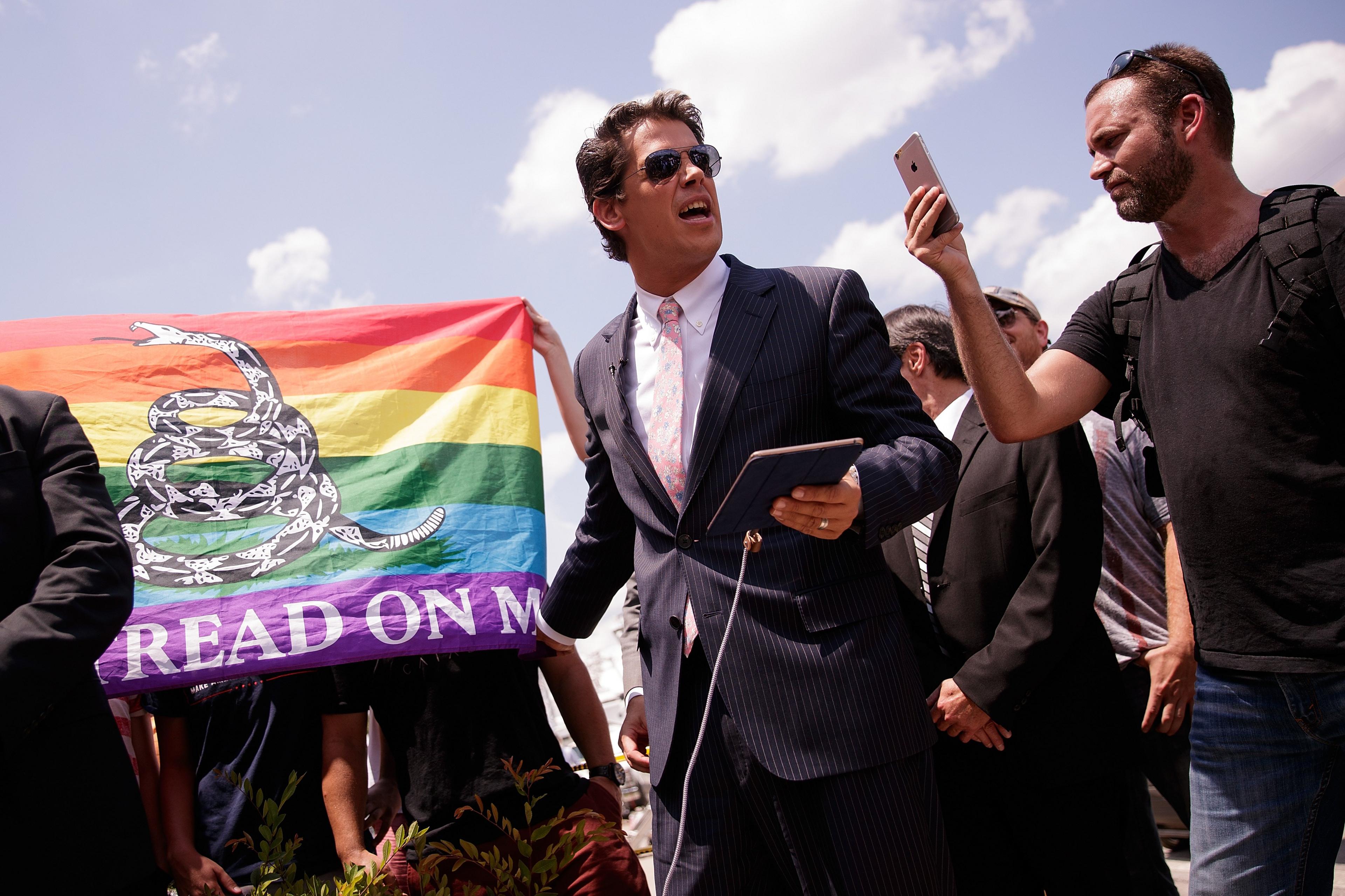
Milo Yiannopoulos has become a figurehead for the alt-right
Perhaps Gottfried did not imagine that his idea would be taken up by a merry band of social-media savvy pranksters. One of the alt-right's figureheads today is Milo Yiannopoulos, technology editor for the website Breitbart. Yiannopoulos is a huge fan of provocation - he hosted a somewhat controversial event, external at the Republican National Convention and recently made the news for getting banned from Twitter after he was accused of orchestrating abuse directed at Ghostbusters actor Leslie Jones.
In a guide to the alt-right, external that he co-authored with Allum Bokhari, Yiannopoulos detailed the movement's factions, including "intellectuals", "natural conservatives" and "the meme team", mostly young activists with a penchant for trolling.
Yiannopoulos acknowledges that the alt-right has attracted some out-and-out racists - but he denies that this is a main theme of the movement's political philosophy. White supremacists are a marginal force, he argues, and culture and specifically Western civilisation, he insists, are the key motivators for the group.
"The real racists… are very serious, are deep into studies and data attempting to prove that some races are smarter than other races - they're really dorky," he says.
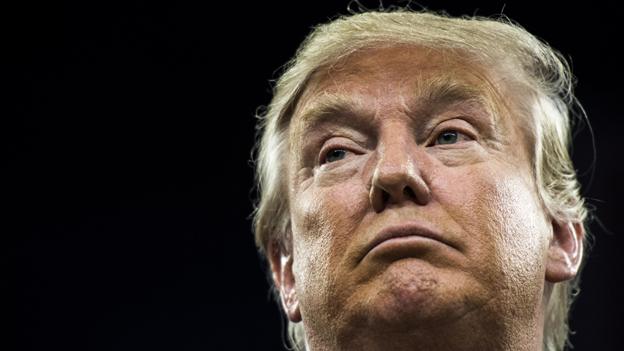
Yiannopoulos and other commentators on the alt-right consistently attack the sort of "identity politics" that they say are perpetuated by liberals.
"If the left insists on breaking people up like this, then yeah, why can't white guys say, you know what, we did most of the good stuff in the world."
But critics point out the contradiction in this approach.
"So the answer is to replicate that (racial) obsession and extend it to white people? That's ridiculous," says Cathy Young, a libertarian columnist and writer. "The alt-right is going to alienate a lot of reasonable critics of political correctness who are going to see the anti-PC rebellion as associated with these white-identity people."
Oliver Lee Bateman is a freelance journalist, and in the course of writing for Vice Magazine he got to know two dozen or so alt-right activists in the US. From that sample, he developed a rough profile of alt-right activists.
"They're college students who might be bright but don't feel like they fit in or they feel like they've been put upon," he says. "If they're in their 30s, they feel like the country is changing or they're losing their country. They're often people who work completely boring bureaucratic or programming jobs. They don't want to put their names or faces out there.
"I quickly realised that the folks I was talking to were among the most articulate and educated in this group. But there's a level below them, they're running these gross hate group pages," Bateman says.
"And when Trump came along and began saying things like I'm going to build a wall, or that Saddam Hussein was a good guy, he killed terrorists, they liked that."
The movement has branches in other countries too, including the UK, albeit on a smaller scale.
"It's nowhere near as big as the American scene," says Iain Davis. "And I'm not surprised, because we are the nation that fought fascism, we pride ourselves on the fact we went and bashed Hitler. And it's [the alt-right] always going to be associated with a National Socialist element, when in truth we're closer to the kind of conservatism that was around 30 or 40 years ago."
The movement has gained attention in parallel with Trump the politician - so the big question is, will it survive if Trump loses? Yiannopoulos argues the alt-right is bigger than one man.
"The vast majority of people in this movement believe in principle over ethnicity, freedom of speech, libertarianism and free intellectual inquiry. If the effect of Trump and the effect of the alt-right is to make the unsayable sayable again, wonderful."
Orthodox conservatives will take heart from the victory of US House Speaker Paul Ryan over businessman Paul Nehlen by a wide margin in the Republican primary for the speaker's district. Ryan accused his opponent of belonging to the alt-right while attacking Nehlen's rhetoric as "dark, grim, indefensible".
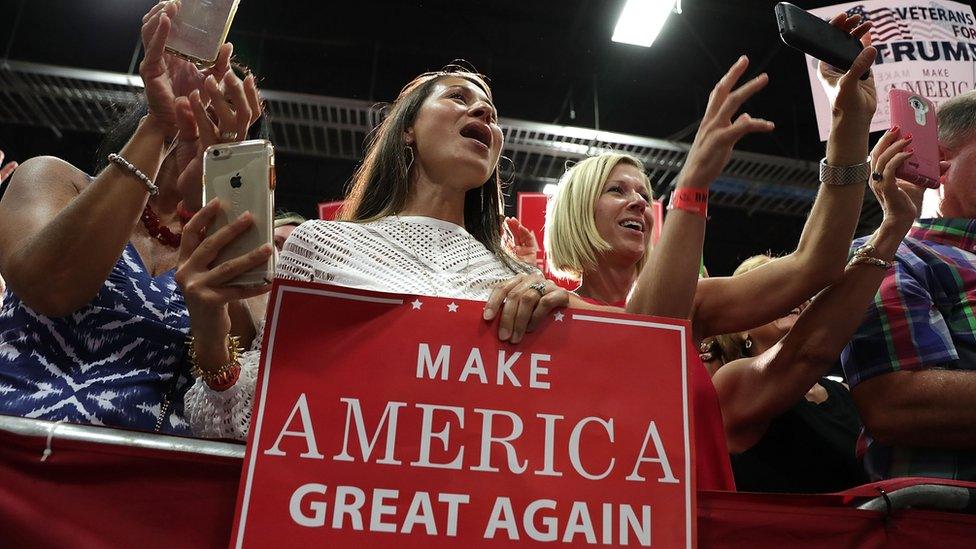
But Trump's victory suggests the establishment have little room for complacency.
"The alt-right probably is here to stay," says Young. "I think that after Trump, it may recede to a more marginal role.
"But after everything that's happened this year, I have completely given up on making any kind of predictions."
Follow @BBCNewsMagazine, external on Twitter and on Facebook, external